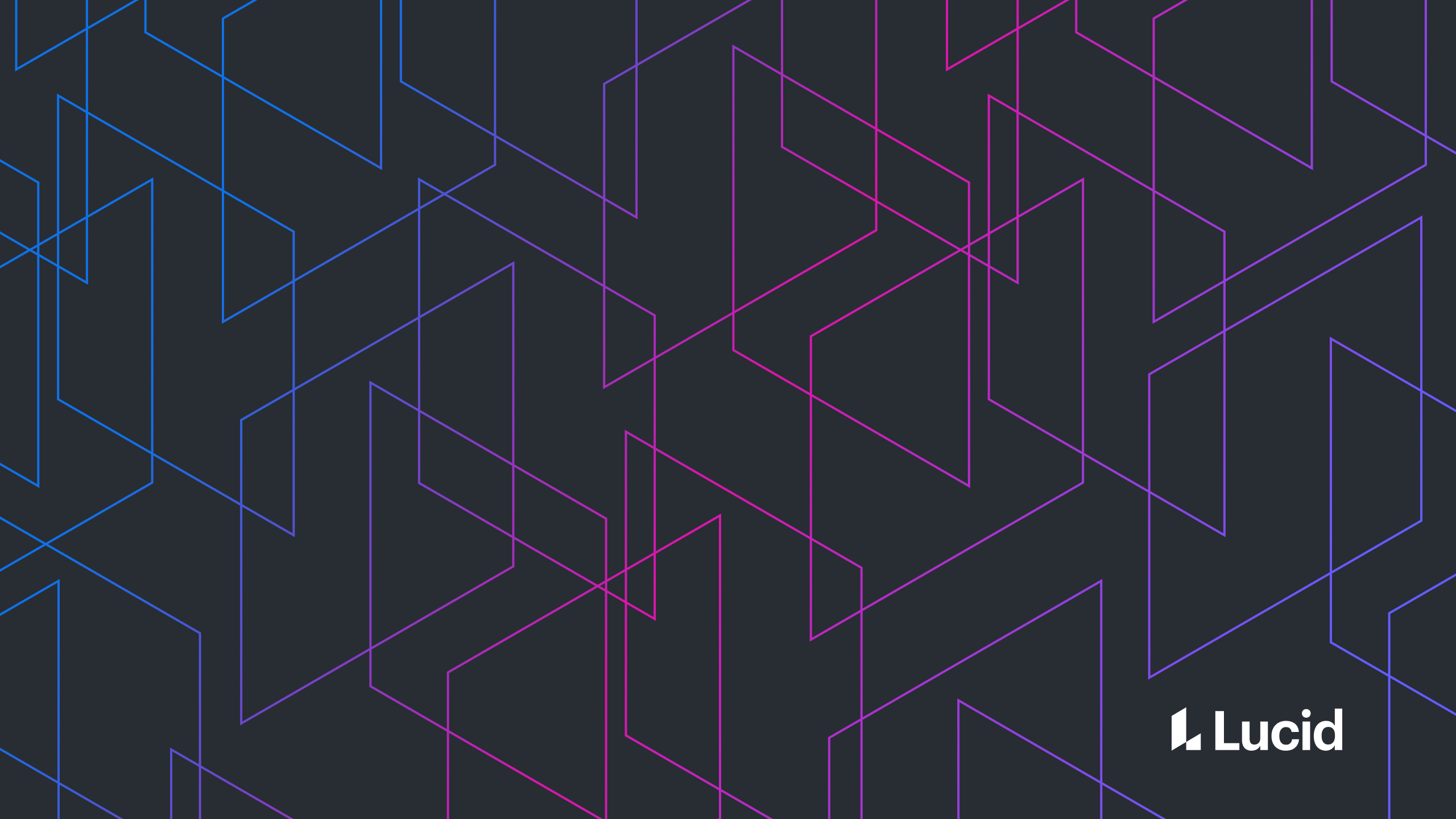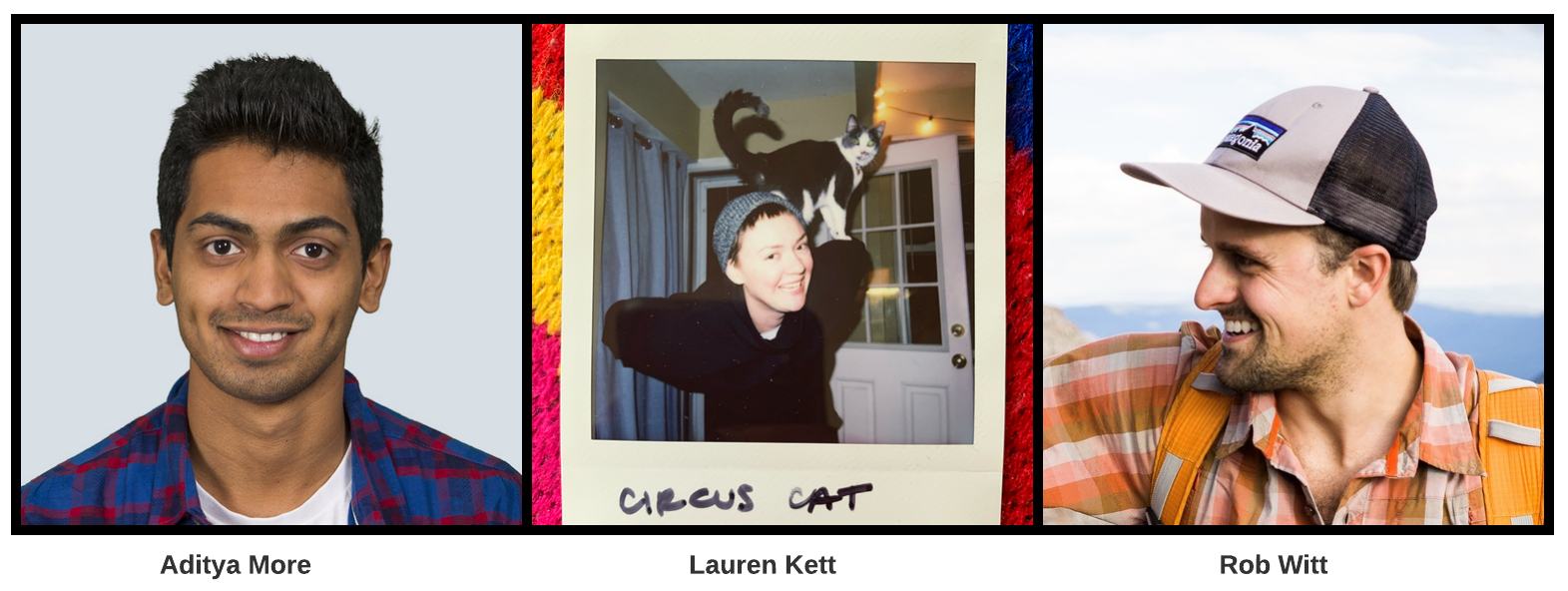
Scrum Team Interview Series: Meet Our Designers
Elayne Petterson
Reading time: about 5 min
Topics:
We’re excited to continue our series of interviews with members of our scrum teams. Today we interviewed Aditya More, a User Experience Designer, Lauren Kett, a User Experience Researcher, and Rob Witt, a User Experience Manager. Note that User Experience is frequently shortened to UX.

What inspired you to become a designer?
Aditya More: I have always been somewhat of a “maker”. As a kid, I enjoyed playing around with electronics to make new gadgets. Growing up, that passion of making cool things led me to software engineering as a career. I also founded a startup during my undergrad where we made mobile apps and games. Although we won a lot of hackathons and awards, most of our projects failed to engage our users and grow as a product. That journey taught me a lot about what makes good software, a good product. It led me to believe that the hardest problem faced by computers was humans. I then pursued a master's degree in human-computer interaction and started my career in UX design at Lucid.
Lauren Kett: When I was a kid, and people asked me what I wanted to be when I grew up, I’d say “a Renaissance woman.” Mostly I liked to show off my big words, but I also liked the idea of collecting different skills and never having to settle on one job.
UX Research has given me the gift of amplifying my curious nature and imagination. I work with teams to understand great unknowns that need solving, figure out methodologies and means of inquiry that get actionable answers, and talk to people of all different backgrounds to understand their pain points. I’ve had the pleasure of interviewing DACA recipients, USDA Egg Shell Graders, Tax Lawyers, and Data Scientists in my career. While I might not be a “Renaissance woman,” embedding myself in the lives of others means I learn something new every day. My job is to reduce suffering and increase empathy for others. I love being a UX Researcher.
Rob Witt: Design and creation have been a part of my life from an early age, I loved to create and build all kinds of things, from wooden train tracks to basically all things Lego, which I still enjoy! Creating things and understanding how things work led me to become fascinated with the world and learning in general.
As a kid, I loved to flip through National Geographic magazines and stare in amazement at all of the remarkable photographs from places around the world. I would primarily get lost in the maps, diagrams, and graphs trying to make sense of it all. It wasn’t until many years later that I realized I hadn’t been pulled into these magazines just because of the pictures, but because I had also been exposing myself to classic graphic design principles in practice. The use of layouts, grids, colors, typography, data, images, and blending all of those techniques together to create and communicate a particular story and message.
This ultimately led me to study to become a graphic designer. I started working in the advertising industry and moved into a more product/UX designer role while working at Lucid.
What do you wish people knew about your job?
Aditya More: I think UX design is hard because it is more like a craft than a science. We have to balance subjective opinions from the stakeholders with real data and make quick decisions. It takes a lot of practice and training to be able to do that. Also, I feel like being a UX designer does not mean that I am an artist who can make neat logos and cool posters. Designers need to have some basic understanding of visual design, but need not be super skilled illustrators or painters. Our main skill lies in user research, leveraging that user research to design experiences and communicating those experiences with all kinds of stakeholders.
Lauren Kett: As a qualitative UX Researcher, I don't have the answers. I am a catalyst. Lucid users have the power to decide whether or not to adopt our product. I engage with users to understand the 'why' of their actions. Learning what Lucid users need from us enables teams to mitigate risk. The speed at which we can learn directly impacts how quickly we can iterate. I am here to help y'all navigate the uncertainty of product development and deliver value.
The UX Research team does all of this by leveraging the powers of observation to ask probing questions and translating Lucidspark brainstorming into actionable insights. Leave a comment with questions if you want to learn more!
Rob Witt: Design isn’t just about the graphics and pretty visuals—good designers need to be able to communicate their ideas and solutions well. In order to do this, designers need to ask questions, be empathetic, and do all they can to understand the problems they are trying to solve.
The design process is messy and will look slightly different for each project. As tempting as it can be to jump straight into production and design mode, resist that urge. Instead, take the time to generate lots of divergent ideas and learn from these explorations. This will help in knowing what to include or not include in your designs, because there are always trade-offs. There will be a lot of work that never sees the light of day, and that is okay.
There is no one path, degree, or boot camp that leads to someone becoming a UX designer. Your interests, passions, and experience with the world play an important part. One thing I love about my job is hearing everyone's unique backstory and journey to how they got into design.
What’s coming next in this series?
The next post in this series will feature members of our Product Management team!
About Lucid
Lucid Software is the leader in visual collaboration and work acceleration, helping teams see and build the future by turning ideas into reality. Its products include the Lucid Visual Collaboration Suite (Lucidchart and Lucidspark) and airfocus. The Lucid Visual Collaboration Suite, combined with powerful accelerators for business agility, cloud, and process transformation, empowers organizations to streamline work, foster alignment, and drive business transformation at scale. airfocus, an AI-powered product management and roadmapping platform, extends these capabilities by helping teams prioritize work, define product strategy, and align execution with business goals. The most used work acceleration platform by the Fortune 500, Lucid's solutions are trusted by more than 100 million users across enterprises worldwide, including Google, GE, and NBC Universal. Lucid partners with leaders such as Google, Atlassian, and Microsoft, and has received numerous awards for its products, growth, and workplace culture.